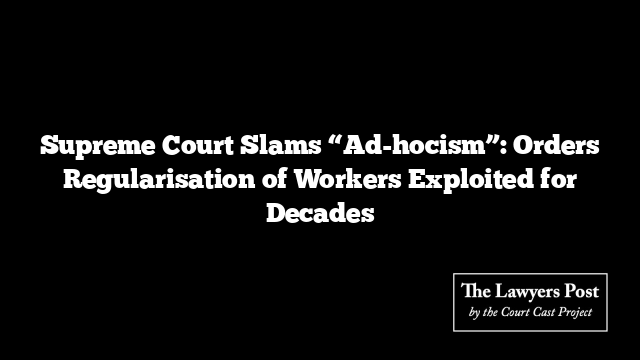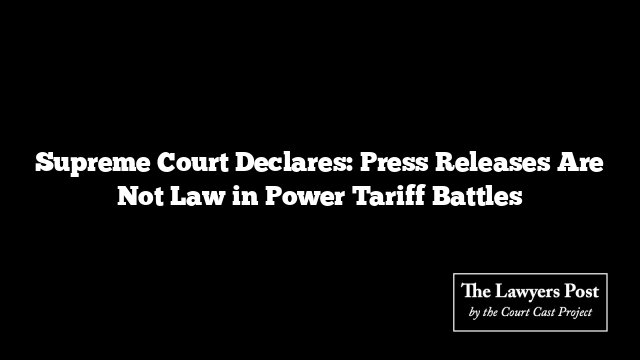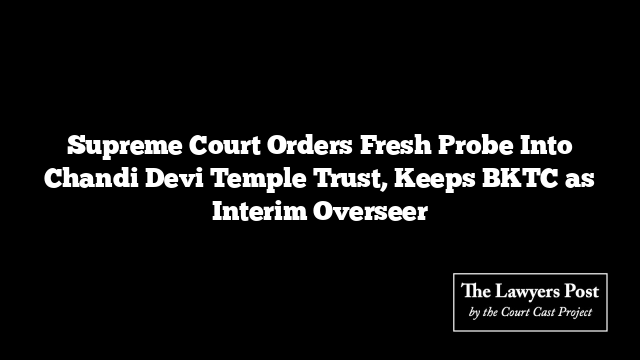For more than thirty years, five Class-IV employees and a driver kept the wheels of the U.P. Higher Education Services Commission turning. Hired between 1989 and 1992 as daily wagers, they were never granted the dignity of regular posts—only excuses of “financial constraints” and a state-wide freeze on new jobs. When the Allahabad High Court backed the State’s refusal to regularise them, the workers knocked on the doors of the Supreme Court.
The country’s highest court has now spoken: the State cannot cloak exploitation in the garb of ad-hoc arrangements.
State’s Duty Goes Beyond Balancing Budgets
A bench of Justices Vikram Nath and Sandeep Mehta tore into the practice of keeping workers permanently temporary. Drawing strength from earlier rulings, the Court reminded governments that they are constitutional employers, not just market players.
“When work recurs year after year, sanctioned posts must mirror that reality. Financial stringency may shape policy, but it cannot be an all-purpose shield to strip workers of fairness and dignity,” the judgment declared.
The bench emphasised that extracting permanent functions through temporary labels corrodes trust in governance and violates the equality and dignity guarantees under Articles 14, 16, and 21.
Ad-hocism as a Symptom of Opaqueness
The Court went further, pointing out that “ad-hocism thrives where administration is opaque.” Departments, it said, must maintain proper registers and records, and explain transparently why precarious hiring is chosen over sanctioned posts when the work is clearly perennial.
Sensitivity to prolonged insecurity, the Court noted, is not sentimentality—it is constitutional discipline.
No Space for Selective Favouritism
The workers also highlighted how others with identical duties and tenure were regularised while they were left behind. The Court found this “selective regularisation” indefensible.
“As a constitutional employer, the State must organise its workforce lawfully. Delay or refusal is not mere negligence; it is a deliberate denial eroding both livelihood and dignity,” Justice Nath wrote.
Regularisation With Retrospective Benefits
The verdict was unambiguous: the appellants are to be regularised from 2002—the year when a fresh recommendation for posts was sought. Where no sanctioned posts exist, supernumerary posts must be created.
Each worker will now be placed on the regular pay scale with continuity of service, back wages, increments, and all consequential benefits. Seniority will flow from the date of regularisation.
With this ruling, the Court sought not only to resolve the grievance of six individuals but also to send a broader message: governments cannot run permanent institutions on the labour of temporary workers.





